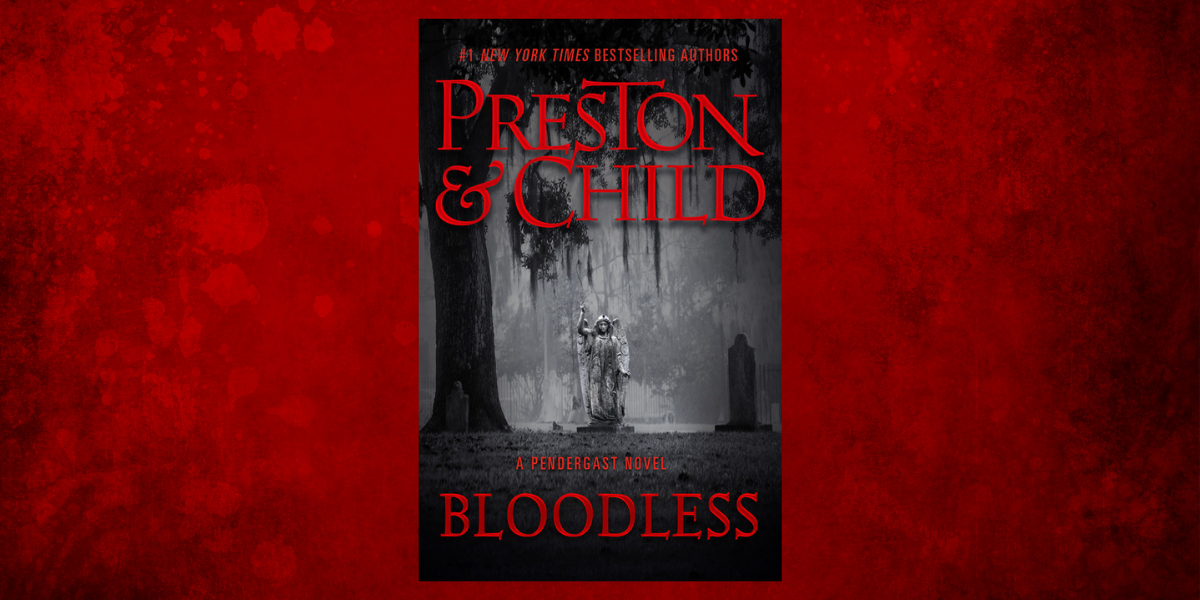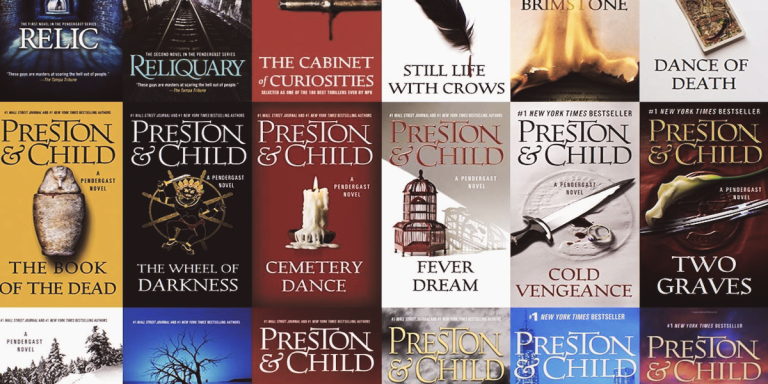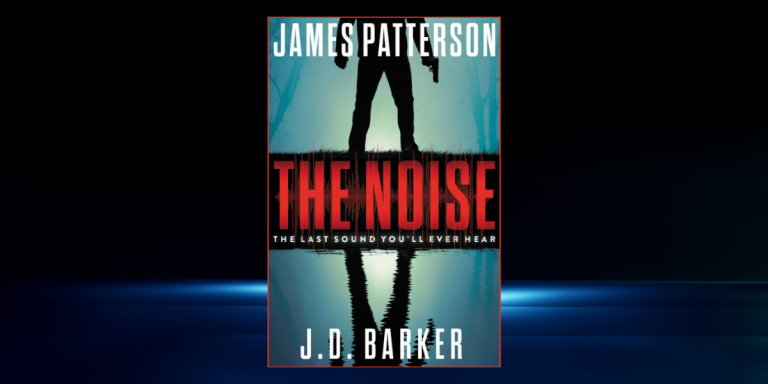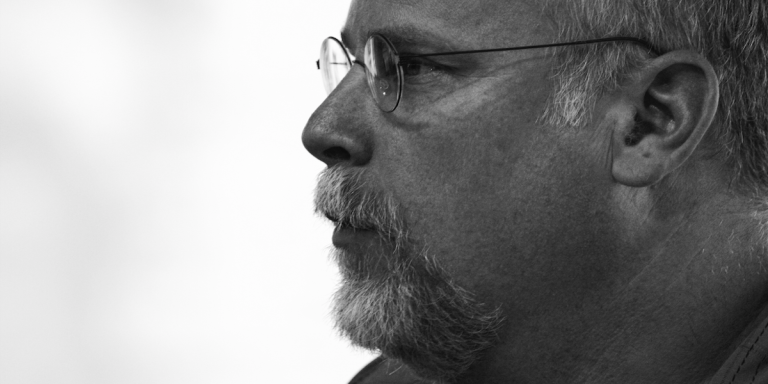Read the Excerpt: Bloodless by Preston & Child
1
Wednesday, November 24, 1971
Flo Schaffner was not at all happy with the new uniform that Northwest Orient Airlines had imposed on stewardesses, especially the dumb cap with a bill and earflaps that made her look like Donald Duck. Nevertheless, she stood at the door of Flight 305— Portland to Seattle—with a bright smile, greeting arriving passengers and checking their tickets. She was not displeased at the relatively small number of passengers on the flight; she’d thought it would be full, this being the day before Thanksgiving. But today only about a third of the main cabin was occupied, which in her experience meant a stress-free flight.
As people began to settle into their seats, she and the other stewardess, Tina Mucklow, began moving from opposite ends of the main cabin, taking drink orders. Schaffner took the rear. One of her first customers was in seat 18C of the Boeing 727: a polite, soft-spoken gentleman of early middle age, wearing a raincoat, a gray business suit, a white shirt, and a black tie. She knew his name; one of her responsibilities in checking tickets was to try to memorize the names of all the passengers and their seat assignments. It was usually impossible, but with the plane as empty as it was, today she had managed it.
“Can I get you anything to drink, Mr. Cooper?”
He politely asked her for a bourbon and Seven. When she brought it, he handed her a twenty.
“Anything smaller?” “Nope.”
She told him he’d have to wait until later for her to get him change. The pilot, William Scott, whom everyone called Scotty, announced over the intercom for the stewardesses to secure the exits and prepare for takeoff. Schaffner raised the aft stairway and then settled in a jump seat next to it, not far from the passenger in 18C. The flight took off
precisely on time, at 2:50 pm, for the thirty-minute hop to Seattle.
As the plane was leveling out and the seat belt signs were turned off, the passenger in 18C signaled to her. She came over, assuming he wanted another drink, but instead he placed an envelope in her hand. This was something that often happened to Schaffner: a lonely traveler writing her a note asking to meet for a drink, dinner, or something more. She had learned that the best way to handle such approaches was simply not to engage. She thanked the passenger warmly and slipped the envelope into her pocket, unread.
The man leaned toward her with a friendly smile and whispered, “Miss, you’d better look at that note. I have a bomb.”
Schaffner wasn’t sure she had heard him correctly. She removed the envelope and took out the note. It was printed in felt-tipped pen in precise capital letters, and it did indeed say he had a bomb, and that as long as everyone cooperated nothing bad would happen.
“Please sit down next to me,” he said, taking the note back from her and putting it in his shirt pocket. She did as told, and he unlatched the briefcase in his lap and lifted the lid a few inches. Inside, she could see a bundle of red cylinders with wires attached, nestled next to a large battery.
He shut the briefcase and put on a pair of dark glasses. “Take this down.”
Taking out her pen, she wrote down a series of instructions. “Relay that to the cockpit,” he said.
Schaffner rose, walked down the aisle, and went into the cockpit. Closing the door behind her, she told the pilot the plane was being hijacked by a man with a bomb. Then, reading from the envelope, she recited the list of his demands.
“Does he really have a bomb?” Scotty asked. “Yes,” she replied. “I saw it. It looked real.”
“Oh, boy.” Scotty called Northwest Orient flight operations in Minnesota. His words were summarized in a teletype.
PASSENGER HAS ADVISED THIS IS A HIJACKING. EN ROUTE TO SEATTLE. THE STEW HAS BEEN HANDED A NOTE. HE REQUESTS $200,000 IN A KNAPSACK BY 5:00 PM. HE WANTS TWO BACK PARACHUTES, TWO FRONT PARACHUTES. HE WANTS THE MONEY IN NEGOTIABLE AMERICAN CURRENCY. DENOMINATION OF THE BILLS IS NOT IMPORTANT. HAS A BOMB IN BRIEFCASE AND WILL USE IT IF ANYTHING IS DONE TO BLOCK HIS REQUEST.
The hijacker also requested that a fuel truck be waiting on the tarmac at Sea-Tac airport, to refuel the plane for a new journey to be specified later. And he demanded that a flight engineer board the plane for the next leg of the journey.
He didn’t say why.
2
In the cockpit of Flight 305, Scotty and copilot Bill Rataczak discussed how to handle the situation. So far, the passengers had no idea the plane was being hijacked—and Scotty wanted to keep
it that way.
After the call to Minnesota, Northwest Orient flight operations had contacted Don Nyrop, the airline’s president, as well as the FBI. The FBI wanted to storm the plane, but Nyrop said he preferred to cooperate with the hijacker, that the airline had insurance and would pay the ransom. The FBI reluctantly agreed. But it would take time for the hijacker’s demands to be met.
In the meantime, the 727 had reached Tacoma and begun to circle. The FBI and the airline scrambled to pull together the ransom and parachutes.
Scotty got on the intercom and told the passengers that the plane was experiencing a minor mechanical problem, there was no need for concern, and that they would be landing in an hour or so. Meanwhile, in the back of the plane, the hijacker, Dan Cooper, had been chain-smoking. He offered a cigarette to Schaffner, who took it to calm her nerves, even though she had given up smoking some time before.
Outside, a storm was developing. Soon it began to rain.
The airline contacted the Seattle National Bank, where it had done business. The bank was glad to help. It had, in fact, a store of money ready for just such a purpose: a cache of twenty-dollar bills that had been microfilmed and each serial number recorded, in case of a heist or robbery. Ten thousand twenty-dollar bills, banded in bricks of fifty, were stuffed into a satchel with a drawstring and delivered to the FBI. It weighed about twenty pounds.
The parachutes were obtained from a jump center east of the airport: two front or reserve chutes, and two rear or main parachutes. As Cooper had insisted, they were civilian parachutes, not military. They, too, were given to the FBI.
Meanwhile, the plane continued to circle Sea-Tac. Tina, the other stewardess, moved up and down the aisle, reassuring passengers. Dan Cooper explained to Schaffner how things were going to work.
“After the plane lands,” he said, “I want you to go out and get the money and bring it back.”
“What if it’s too heavy?”
“It won’t be. You’ll manage. Then,” he continued, “you’ll get the parachutes and bring them on board.” He pulled a bottle of Benzedrine pills from his pocket. “Take these to the cockpit in case the crew gets sleepy during the next flight.”
She asked if he was hijacking the plane to Cuba, at the time the most common destination for skyjackings.
“No,” he said. “Not Cuba. Someplace you’ll like.”
She asked him why he was hijacking the plane. Did he bear a grudge against Northwest?
“I don’t have a grudge against your airline, miss,” he said. “I just have a grudge.”
On the ground, the airport had been closed and all outgoing flights canceled. Incoming flights were either diverted or put into a holding pattern. Shortly after five, ground control radioed the plane and said the money and parachutes had been assembled and were in a car at the far end of a runway, as instructed.
The pilots brought the 727 in to land and taxied, as per the hijacker’s instructions, to a remote section of runway. It was now dark and the rain persisted, accompanied by occasional flashes of lightning. The area had been illuminated with banks of floodlights.
The plane came to a halt. “Go get the money,” Cooper told Schaffner.
Schaffner walked down the aisle to the exit door and descended the stairs, walking in wobbly high heels to the waiting vehicle. An FBI agent took the money from the trunk and handed it to her. Schaffner walked back to the plane, mounted the stairs, and carried the sack back to Cooper. He opened it, looked inside, grabbed a few bricks and took them out.
“For you,” he said.
Schaffner was surprised. “Sorry, sir. No tips. Northwest Orient policy.”
He seemed to smile faintly. “All right. Go get the parachutes.”
Schaffner once again descended the stairs and, making two more trips, brought Cooper the four parachutes.
He leaned toward her. “Now, this is the important part, Flo. Listen carefully. It’s time for the captain to tell everyone on board that the plane has been hijacked. The hijacker has a bomb. He is to order everyone off the plane. They’re to go straight out—not open the overhead compartments, not take their carry-on luggage or anything else they brought on board. If these instructions are not followed to the letter, or if a hero tries to come back and interfere with me, I’ll detonate the bomb. Please relay that to the captain. Only the pilot, copilot, and you are to remain on board.”
“Yes, sir.” Schaffner got up, went to the cockpit, and relayed the demand. A moment later the captain got on the intercom.
“Listen carefully, and please remain calm,” Scotty’s neutral voice came over the speakers. “There is a hijacker on this plane with a bomb.”
There was a scattering of expostulations, gasps, a scream or two.
“Do not panic. All passengers are to deplane immediately. Do not open the overhead bins. Do not take any carry-on luggage with you. You are to deplane empty-handed.”
More gasps, murmurs.
“Commence deplaning now. Walk, don’t run.”
The passengers rose up en masse, in a babble of confusion and raised voices, and surged toward the forward stairs. Several passengers reached for the overhead compartments, and one managed to get his open.
Seeing this, Cooper rose from his seat and held up his attaché case, brandishing it like a weapon. “You!” he screamed, suddenly enraged, gesturing at the offending passenger. “Get back! I’ve got a bomb! I’m going to set it off if you don’t follow instructions!”
The passenger, an older man, backed up, face full of terror, amid the yells and rebukes of the passengers around him. Someone gave him a shove forward; he abandoned the open bin and was pushed along with everyone else as they stumbled off the plane. In a few minutes, the cabin was empty, with the exception of Schaffner and Tina.
“You get off, too,” Cooper said to Tina. “And tell the flight engineer to board.” Then he grabbed the cabin phone. “How much longer for refueling?” he yelled into it.
“Almost done,” the copilot told him.
The Northwest flight engineer who had been brought in came up the stairs and stood in the galley, awaiting orders.
Cooper turned to Schaffner. “Close all the shades. Both sides.” Schaffner was really frightened now. The calm, polite version of
Cooper had vanished, replaced by a high-strung, angry man. “Yes, sir.” As Schaffner went around closing the shades, Cooper spoke to the flight engineer. “You. Listen carefully. As soon as refueling is done, I want you to set a course for Mexico City. Keep your altitude below ten thousand feet—no higher. Trim the flaps down to fifteen, keep the gear down, and don’t pressurize the cabin. Fly at the slowest possible speed that configuration allows, which should be no more than one hundred knots.” He paused, then said: “I intend to put the aft stairs down and take off in that configuration. Is that feasible?”
“Everything you’ve said is feasible,” the flight engineer said, “except it would be dangerous to attempt takeoff with the aft stairs deployed. And with the configuration you’re specifying, we’ll need to refuel at least once.”
After a brief back-and-forth, Cooper agreed to having the aft stairs closed and making a stop in Reno for refueling.
“Now join the crew in the cockpit and shut the door,” Cooper told the engineer. “And get the show on the road.”
After the flight engineer had disappeared into the cockpit, the fuel truck withdrew and the jet engines began to rev up, the plane turning to taxi down the runway.
The hijacker turned to Schaffner. “Show me how to operate the aft stairs.”
She showed him, then gave him a card with instructions.
“Go into the cockpit,” he said. “On your way, close the first-class curtains. Make sure nobody comes out.”
“Yes, sir.”
She was relieved not to have to sit next to him again, but still frightened at his abrupt change of demeanor—especially now, when all his demands had been met. She went forward and turned to shut the curtain, catching a glimpse of the hijacker as she did so. He was tying the sack of money around his waist. The plane had reached the end of the taxiway and now turned onto the runway, accelerating for takeoff. The time was 7:45 pm.
3
The man who called himself Dan Cooper finished tying the bundle of money around his midriff. He then went to one of the overhead bins, the one above seat 12C—the one that had been opened by the
old man. He pulled out some hand luggage, strewing it about the cabin, until he reached a battered brown briefcase. He removed it with care and placed it on his own seat. Then he opened more bins and pulled out luggage at random—bags, purses, coats, umbrellas—and tossed it around the interior. The storm had gotten worse and their course was taking them through some turbulence, the plane thumping up and down from time to time, causing additional luggage to topple out of the open bins.
Stepping over the luggage, Cooper donned a back parachute with swift and efficient movements, then put on the forward, reserve chute. He went to the aft stairs and, referring to the card of instructions Schaffner had given him, unsealed the hatch to a great roar of wind and opened the stairs into the darkness.
The sudden change in pressure alarmed the pilots in the cockpit. Copilot Rataczak got on the intercom. “Can you hear me?” he called. “Is everything okay back there?”
“Everything is okay.”
The hijacker reached around and grasped his own attaché case—the one containing the fake bomb—and threw it out the hatch into the thunderous darkness. Next, he selected several pieces of luggage at random and tossed them out as well. Finally, using shroud lines cut from a parachute he wasn’t planning to use, he took the brown briefcase he had removed from the overhead bin and securely tied it to his midriff opposite the money bag. He now bore a faint resemblance to the Michelin Man: parachutes on the front and back, the money tied on one side and the briefcase on the other. It may have looked comical, but it was secure.
This accomplished, he stepped carefully onto the stairs and then, a moment later, jumped into the night. In the cockpit, everyone noted the sudden lift caused by the release of weight, and the captain recorded the time: 8:13 pm. But they weren’t sure what it meant. They had no way of knowing if the hijacker was still in the plane, and so they flew onward to Reno.
Cooper hurtled out into the blasting wind. He waited a moment to clear the two engines, which on the Boeing 727-100 were mounted aft; stabilized his free fall; counted a full sixty seconds—and then released the drogue. This action pulled out a ten-foot bridle, which in turn yanked the parachute out of the deployment bag. Cooper noted all these stages by feel, with satisfaction. As soon as the chute was fully open, he oriented himself, making out the faint lights of the town of Packwood, his fixed point of reference—dimmed by the storm but still visible.
Then he reached down to where he had tied the bag of money, tugged open the drawstring, and reached into the bag. With the chute open, the wind had lessened considerably and movement was easier. He grabbed a fistful of cash, yanked it out, and tossed it away. Then he began emptying the bag as quickly as possible, throwing handfuls of money off into the night.
Suddenly, he felt a jerk on the lines. Looking up, he saw that several bundles of money had been swept upward and were interfering with the main canopy, partially deflating it. At the same time, he felt his fall accelerate toward a fatal rate of descent.
He did not panic. In a practiced move, he cut away the main canopy by pulling the release handles on the shoulder straps. He now went into free fall. He quickly pulled the second handle to manually deploy the reserve chute. But when it snapped out and open, he realized there was something wrong with this, as well; it had deployed but not cleanly. Maybe it had been sabotaged or, more likely, it had simply become stiff from sitting too long without being repacked. A not uncommon problem.
But it was a dire problem for him.
Cooper felt an unfamiliar surge of panic as he dropped through the darkness, the wind tearing loose the bag with the rest of the money. Nothing he tried could correct the deployment of the reserve chute. He continued to fall, the partially collapsed reserve chute juddering in the turbulence, a final cloud of twenty-dollar bills bursting like confetti and fluttering away into the night as the struggling figure plummeted down toward the forest below, soon lost from sight in the howling storm.
Order The Book
A fabulous heist:
On the evening of November 24, 1971, D. B. Cooper hijacked Flight 305—Portland to Seattle—with a fake bomb, collected a ransom of $200,000, and then parachuted from the rear of the plane, disappearing into the night…and into history.
A brutal crime steeped in legend and malevolence:
Fifty years later, Agent Pendergast takes on a bizarre and gruesome case: in the ghost-haunted city of Savannah, Georgia, bodies are found with no blood left in their veins—sowing panic and reviving whispered tales of the infamous Savannah Vampire.
A case like no other:
As the mystery rises along with the body count, Pendergast and his partner, Agent Coldmoon, race to understand how—or if—these murders are connected to the only unsolved skyjacking in American history. Together, they uncover not just the answer…but an unearthly evil beyond all imagining.
By clicking 'Sign Up,' I acknowledge that I have read and agree to Hachette Book Group’s Privacy Policy and Terms of Use
What to Read Next








